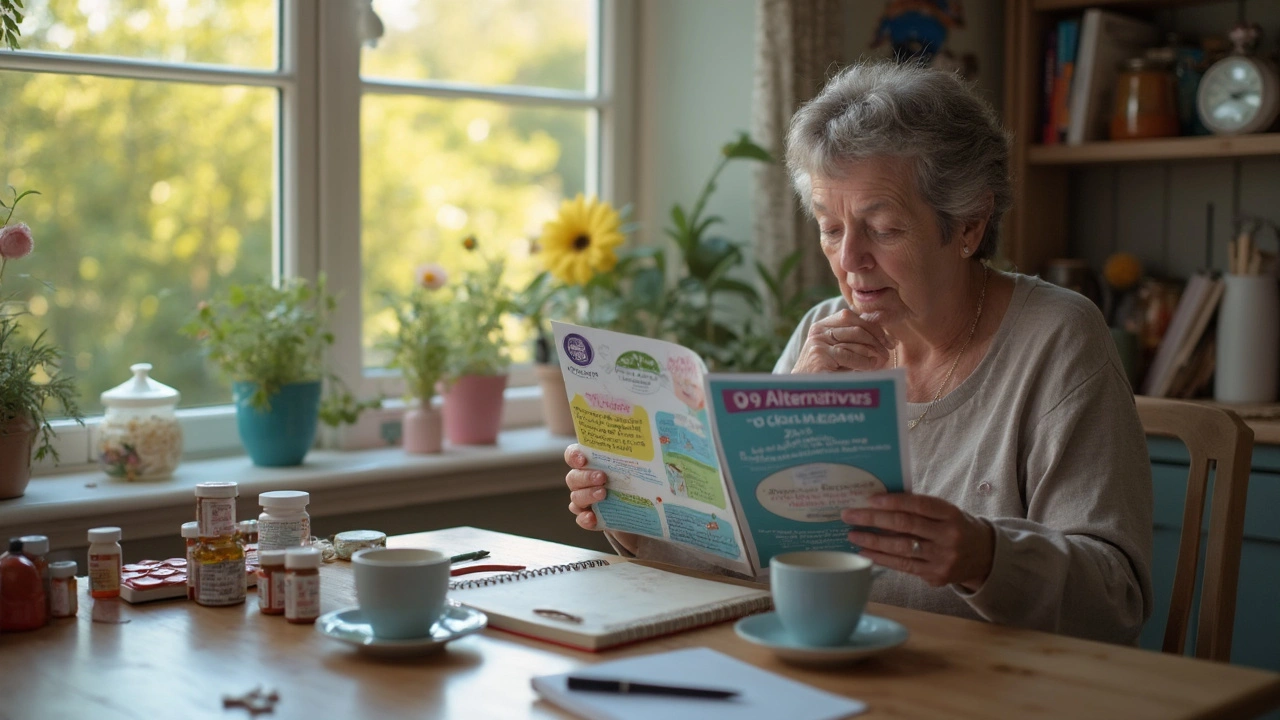Depression options: practical treatments that work
Depression isn't one-size-fits-all. If you're feeling stuck, there are clear options you can try - fast-acting and long-term. This page gives straightforward choices: meds, therapy, lifestyle changes, and when to get urgent help. Read on to find what might fit your life and what to ask your doctor.
Medication options
Antidepressants can reduce symptoms and help you think more clearly. Common classes include SSRIs (like sertraline and escitalopram), SNRIs (like venlafaxine), atypical antidepressants (like bupropion), and tricyclics. With a prescriber you'll discuss benefits, side effects, and how long to try a drug - usually 4-8 weeks to see improvement. If one drug doesn't help, switching or combining medications is a normal next step. For severe or treatment-resistant depression, options include augmentation with atypical antipsychotics or therapies like electroconvulsive therapy (ECT). Always follow a doctor's guidance and never stop a drug suddenly.
Non-medical and self-help options
Therapy works. Cognitive behavioral therapy (CBT) and interpersonal therapy (IPT) have strong evidence for easing depression. A therapist helps change unhelpful thoughts and build better routines. If in-person therapy feels hard, many effective online programs and teletherapy sessions exist now. Self-care matters too: regular sleep, a simple movement routine (walking 20-30 minutes most days), and small goals can lift mood.
Exercise affects brain chemistry and improves sleep and confidence. Start small - ten minutes counts. Nutrition matters: aim for regular meals, protein, and veggies; avoid heavy caffeine or alcohol when feeling low. Mindfulness and breathing practices help with anxious thoughts and relapse prevention. Peer support groups and community activities reduce isolation and add structure.
Supplements can help some people but are not replacements for care. Evidence supports omega-3s and vitamin D in certain cases, especially when a deficiency exists. St. John's wort shows benefit for mild to moderate depression but interacts with many drugs - talk to a pharmacist before trying it. Keep records of what you try and share them with your provider.
When should you get urgent help? If you have persistent suicidal thoughts, plan to harm yourself, or can't handle daily tasks, seek emergency care or contact crisis lines right away. If therapy and meds only partially help, ask about a psychiatry referral or advanced treatments like transcranial magnetic stimulation (TMS).
Practical steps to start today: schedule a primary care or mental health visit, list your top three symptoms, track sleep and mood for two weeks, and set one tiny goal - call a friend or walk outside. Small, consistent steps compound. You don't have to fix everything at once; pick one option and commit to it for a month, then reassess with your clinician.
Expect ups and downs. Most people see some relief within a few weeks on treatment, but full recovery can take months. Keep a simple journal: note sleep, appetite, energy, and a mood number 1-10 each day. Bring that to appointments - it helps your clinician pick the right plan. If side effects become worse than symptoms, report them. Small tweaks - dose changes, timing, or adding therapy - often make a big difference without starting over, and stay in touch with support.

9 Best Alternatives to Clonazepam in 2025: Options and What to Expect
Thinking about switching from Clonazepam? There are plenty of options out there for 2025, each with its own pros and cons. This article breaks down nine real alternatives to help you navigate side effects, effectiveness, and withdrawal problems. You'll see what separates these choices, making it easier to talk to your doctor or weigh your options. Honest tips, relatable facts, and no sugarcoating the tough stuff.
© 2026. All rights reserved.
